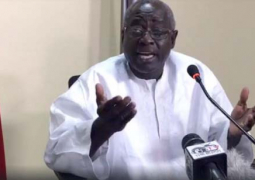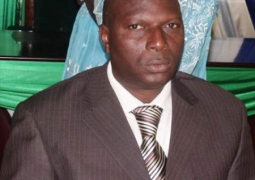
The
Gambia has joined an increasing number of African countries withdrawing
membership from the International Criminal Court (ICC) in The Hague,
Netherlands.
“As
from today, Tuesday, 25th October 2016, we are no longer a member of the ICC,”
the Minister of Information and Communication Infrastructure announced.
In
a televised statement aired over the state broadcaster, GRTS, last evening,
Minister Sheriff Bojang said the government has started to complete the
withdrawal process as stipulated in the statutes that established the court.
Last
week, Burundi’s president signed a decree making his country the first to
withdraw from the ICC. Three days later,
on Friday, South Africa became the second to withdraw.
In
Kenya, the executive decision to withdraw from the court is pending, but the
Kenyan parliament had passed two resolutions to withdraw the country’s backing
for the Rome Statute that established the court.
In
The Gambia, Bojang said the government’s decision to withdraw from the court is
warranted by the fact that “the ICC despite being called the International
Criminal Court is, in fact, an International Caucasian Court for the
persecution and humiliation of people of colour, especially Africans”.
He
said: “This Infamous Caucasian Court for
the persecution of Africans and especially their leaders, showed its true
colours when it declared immediately after the United Kingdom released their
investigation report on the Iraq war pronouncing former Prime Minister Tony
Blair of committing war crimes; that the ICC will not indict Tony Blair for war
crimes.
“There
are many Western countries, at least 30, that have committed heinous war crimes
against independent sovereign states and their citizens since the creation of
the ICC, and not a single Western war criminal has been indicted.”
The
ICC has opened inquiries involving nine nations, all but one of them African:
Kenya, Ivory Coast, Libya, Sudan, Democratic Republic of Congo, Central African
Republic (twice), Uganda, Mali and, most recently, Georgia.
Meanwhile,
Mr Bojang said The Gambia had taken the European Union to the ICC about a year
ago for the mass murder (genocide) of thousands of young Africans on European
coastal waters, but nothing has been heard from the ICC.
He
added that after several warnings to the UN General Assembly and the Security
Council, in particular, about the mass murder of young African migrants on
European beaches and waters, in annual speeches to the United Nations General
Assembly, fell on deaf ears, the Gambia government engaged the ICC to prosecute
those leaders and countries responsible for the genocide.
“We
made it very clear that if the ICC fails to bring those responsible to justice,
the Islamic Republic of The Gambia would be obliged to use other more stringent
options to make those responsible for the deaths of thousands of young African
migrants on the European coast face justice or pay a very high price for their
racist genocide,” Mr Bojang declared.
Read Other Articles In Article (Archive)




